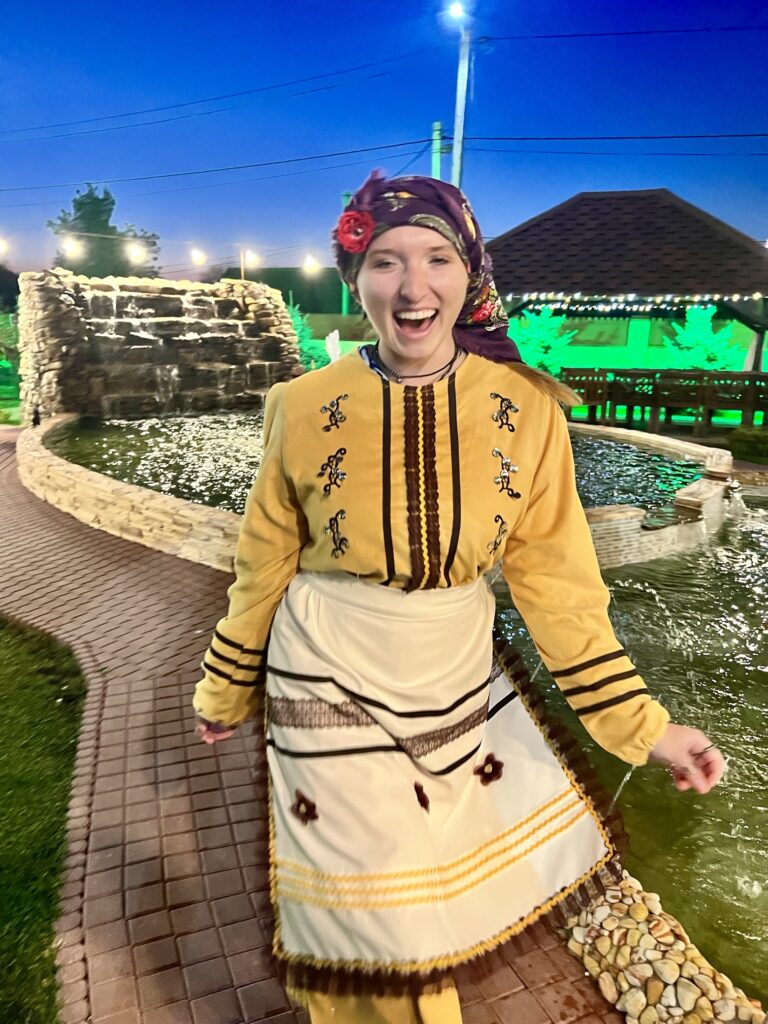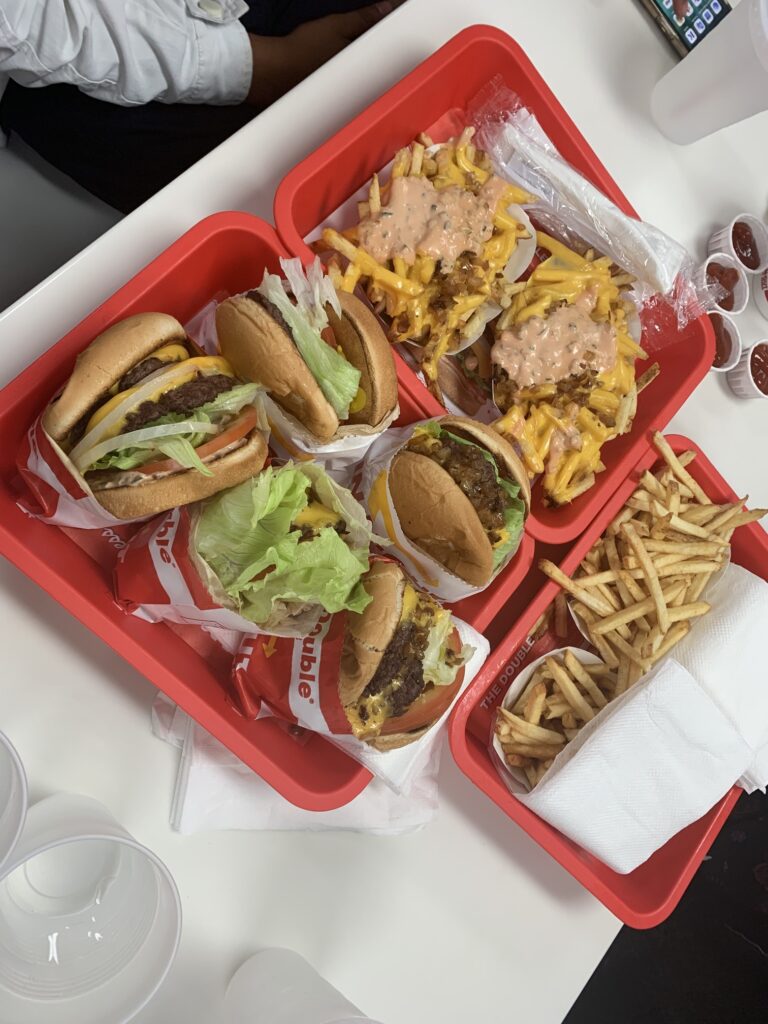
What is Luwak Coffee: Uncovering the Secret Behind the Brew
 January 25
January 25
 11 min read
11 min read
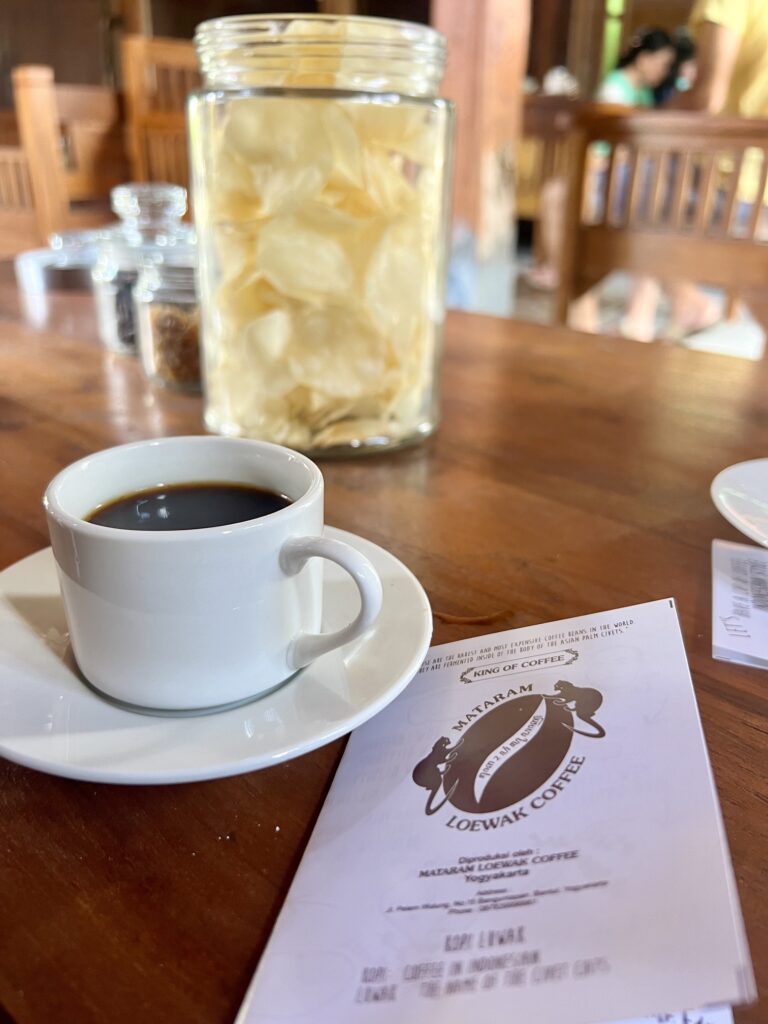
What is Luwak Coffee- Key Highlights
- What is Luwak Coffee? It is one of the world’s most expensive and unique coffees, produced in Southeast Asia and a few other regions.
- It gets its exclusivity from the unusual production process, involving the digestion of coffee cherries by the Asian palm civet.
- This animal, not a cat, is responsible for the coffee’s distinct flavor profile.
- However, ethical concerns arise from the treatment of civets in certain farming practices.
- This blog will explore everything you need to know about the unique luwak coffee experience, history, production, taste, and the ethical concerns surrounding it.
Introduction
Let’s go on a journey into the fascinating world of Kopi Luwak, also known as palm civet coffee or civet coffee, which is hailed as the Holy Grail of coffees and is related to the Asian palm civet (paradoxurus hermaphroditus). This special coffee has caught the interest of many coffee lovers and those seeking luxury. It has a rich history in Indonesia. The interesting path of Kopi Luwak, from the forest to your cup, is just as appealing as its unique taste. Let’s dive into what is Luwak Coffee, below!
What is Kopi Luwak coffee?
Kopi Luwak, often called “cat poop coffee,” is a special and costly type of coffee made in a unique way through the production of Kopi Luwak. It begins with the Asian palm civet. This small animal lives in Southeast Asia, including Vietnam, and is not really a cat. These interesting animals are very picky about their food. They look for and eat only the ripest and tastiest coffee cherries, resulting in a product that can be compared to an espresso.
Now, here’s the interesting part. The civet eats the fruit pulp but lets the coffee beans pass through its system. After that, these beans are collected, cleaned, roasted, and brewed to make Kopi Luwak.
The History of Civet Coffee
In the 1700s, Indonesia was under Dutch colonial rule. This is when the interesting story of civet cat coffee and small carnivore conservation began. As coffee became more popular, Dutch colonists created large coffee plantations all over the islands of Indonesia. To make more money, they did not let local workers eat the coffee beans picked from the farms.
Smart farmers saw that wild civets came onto the plantations at night. They found whole coffee beans in the civet droppings. Out of need and curiosity, they gathered, cleaned, and roasted those beans. This led to the first cups of Kopi Luwak. The Dutch officials soon heard about this special drink and were pleasantly surprised by its taste. This helped bring more popularity to this unique coffee.
Why Would You Drink Kopi Luwak?
Adventure-loving coffee drinkers often seek out kopi luwak from Sumatra and the Philippines for its unique flavor in Bali. Many list it as a bucket list item. Its rarity and special way of making it make it feel like a status symbol. This is especially true for people who love coffee.
The civet’s body is important for changing the taste of kopi luwak. As the coffee beans go through the civet’s system, they ferment naturally. This process reduces bitterness. It creates a smoother and less acidic cup of coffee. Even though kopi luwak is expensive, the whole experience of drinking it is what really makes it special.
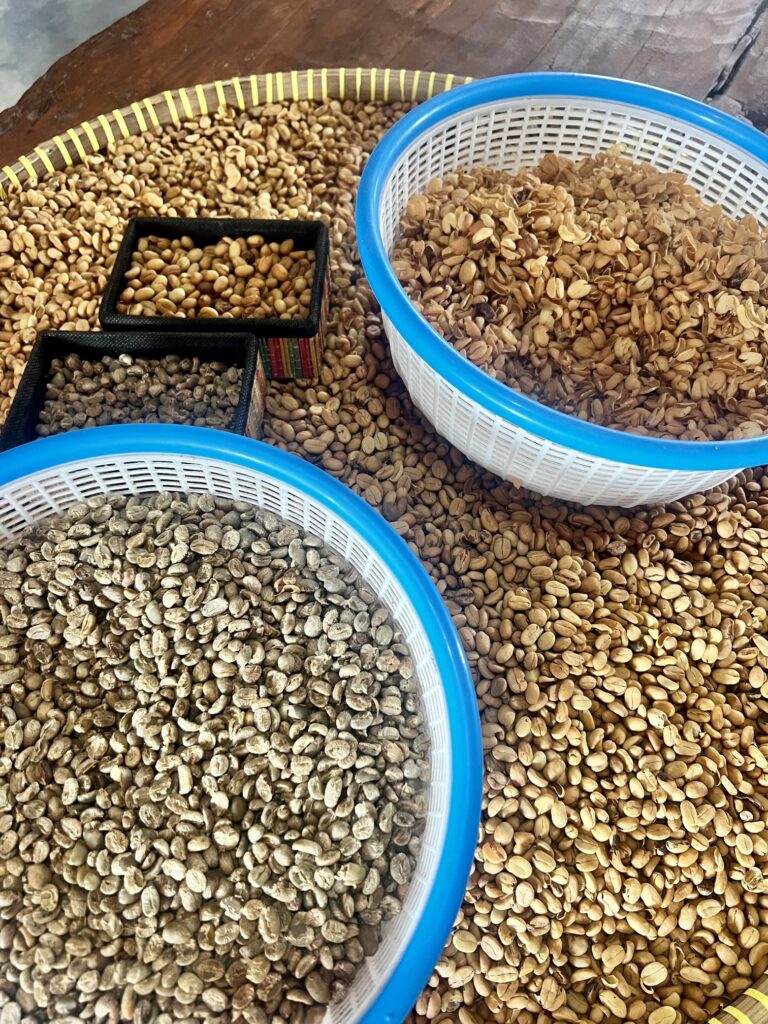
Understanding Luwak Coffee
Beyond the interesting stories and the high cost, there is a detailed process that shapes the special features of Kopi Luwak. By learning about how it is made, we can appreciate this unique coffee more. It is also important to look at the production process. This helps us tell real Kopi Luwak from fake ones. Plus, we need to think about the ethical issues with some farming methods that have come up due to the high demand for this coffee.
The Unique Process Behind Its Production
The making of Kopi Luwak begins with the Asian palm civet. This small animal picks and eats the ripest coffee cherries. It has a good sense for selecting only the best cherries, which helps ensure the quality of the beans right from the start.
These coffee cherries then go on a unique journey inside the civet’s digestive system. There, special enzymes break down the outer pulp of the cherries. The beans continue through the digestive tract, where they undergo fermentation and get special flavors.
Afterward, the beans are expelled. They are gathered, cleaned, and processed. Next, they are roasted. This changes the beans into aromatic ones, ready for grinding and brewing. The natural fermentation process, helped by the civet’s enzymes, greatly affects the flavour of Kopi Luwak. It reduces bitterness and gives the coffee a smoother, chocolatey taste.
The Rarity and Exclusivity of Luwak Beans
Kopi Luwak is one of the most expensive coffees in the world. Its high price is mainly due to its rarity. The method of production for Kopi Luwak used to depend on wild Indonesian palm civet animals. These animals could not be kept at farms, so farmers had to find and gather coffee beans from the forest ground, including regions like Thailand. This was a slow and hard job, leading to a low supply.
The demand for this special coffee increased after the movie The Bucket List, where it was shown, largely due to Morgan Freeman’s role and the performance of Jack Nicholson. This rise in interest has led to some bad farming practices. Some farms work hard to be ethical and sustainable, but many have problems with animal welfare when keeping civets in captivity.
Authenticity, Fraud, and How to Identify Genuine Kopi Luwak
The Kopi Luwak industry faces a problem because of its high price. There is a risk of fraud. It is simple for sellers to mix regular coffee beans with Kopi Luwak. This makes it hard to be sure which beans are real. To tell the difference between real and fake beans, you need to look at several things:
| Genuine Kopi Luwak | Counterfeit |
| Irregular shape and size | Uniform shape and size |
| Strong aroma, often described as earthy, musky, and smooth even before brewing | Often lacks a distinctive aroma |
| Beans may have a mottled appearance | Consistent brown color |
| Priced significantly higher than regular coffee | May be priced lower than genuine Kopi Luwak, but still relatively high. |
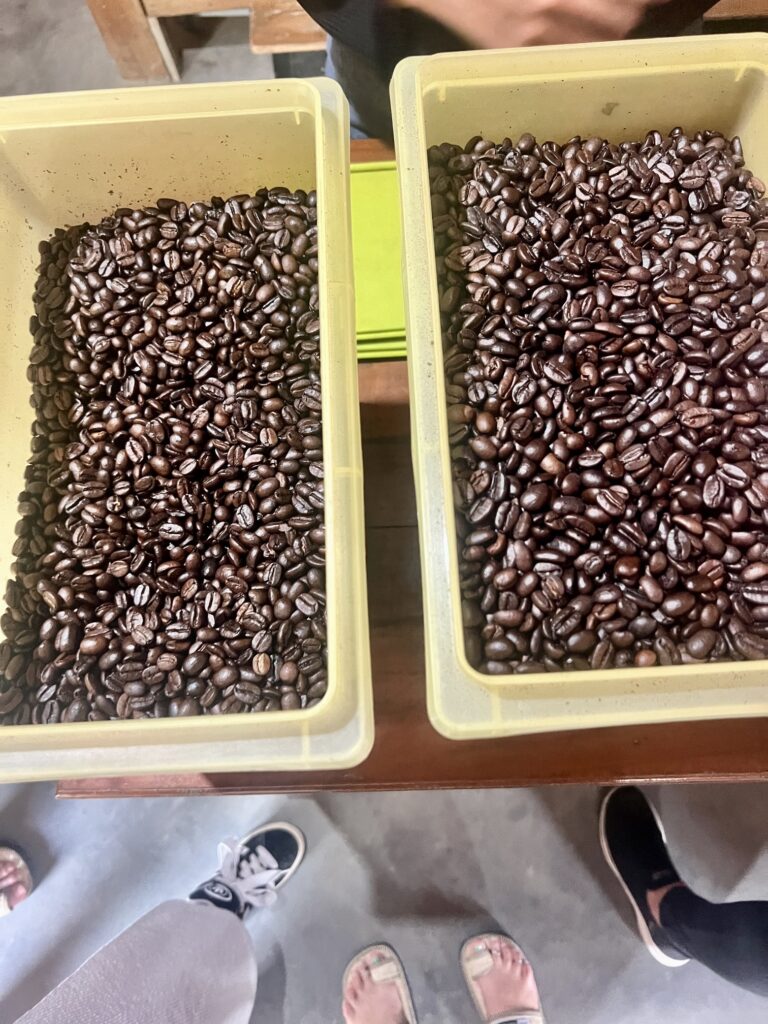
The Flavor Profile of Luwak Coffee
Many coffee fans think Kopi Luwak has a special taste that makes it different from regular coffee. The way it ferments in the civet’s stomach plays a big part in giving it these unique flavors, leading some enthusiasts to compare it with the reviews in The Washington Post, even likening it to “petrified dinosaur droppings steeped in bathtub water” and suggesting it is more of a gimmick.
People often say the taste is smooth, rich, and not as bitter as normal coffee. Some coffee lovers notice hints of chocolate, caramel, and a little earthiness. This mix creates a special and complex taste experience.
A Comparison to Traditional Coffee Varieties
Kopi Luwak and regular coffee taste different. One main difference is that Kopi Luwak has less bitterness. This is because the fermentation process in the civet’s gut breaks down the compounds that make coffee bitter. This results in a smoother taste, especially for people who don’t like bitter flavors.
Kopi Luwak also has a more complex flavor. It includes earthy, musky, and slightly sweet notes that aren’t usually found in regular coffee.
Here is a breakdown of its qualities:
- Acidity: Kopi Luwak has lower acidity than many traditional coffees. This is great for people with sensitive stomachs.
- Body: It is often called full-bodied and smooth, leaving a nice aftertaste.
- Aroma: The aroma is unique and strong. It smells earthy and musky, with hints of chocolate or caramel.
Factors Influencing Its Distinct Taste
Kopi Luwak has a special flavor because of several key factors. First, when the civet eats the coffee cherries, the natural enzymes in its stomach help start a fermentation process. This process is important because it breaks down proteins. This is why Kopi Luwak has a smoother and less acidic taste compared to regular coffee.
Second, civets have a good sense of taste. They choose only the ripe coffee cherries. By doing this, they make sure they eat the best coffee cherries, which adds to the rich flavor.
Finally, the way the kopi luwak beans are roasted matters a lot. Roasters need to take care when roasting these beans to keep the unique flavors that come from the civet’s digestion. If they under-roast or over-roast the beans, it can hide or ruin those subtle flavors, which will hurt the quality of the coffee.
Ethical Concerns and Sustainability
The unique appeal of Kopi Luwak is interesting. However, we need to think about the ethical issues linked to how it is made, including the literature review on animal welfare concerns. Animal welfare is a big concern. The rising interest in Kopi Luwak has caused some farms to use bad practices in certain areas.
It is important to focus on supporting Kopi Luwak production that is both sustainable and ethical. We want to enjoy this special coffee while making sure we are responsible about how it is made and that animal welfare is taken care of.
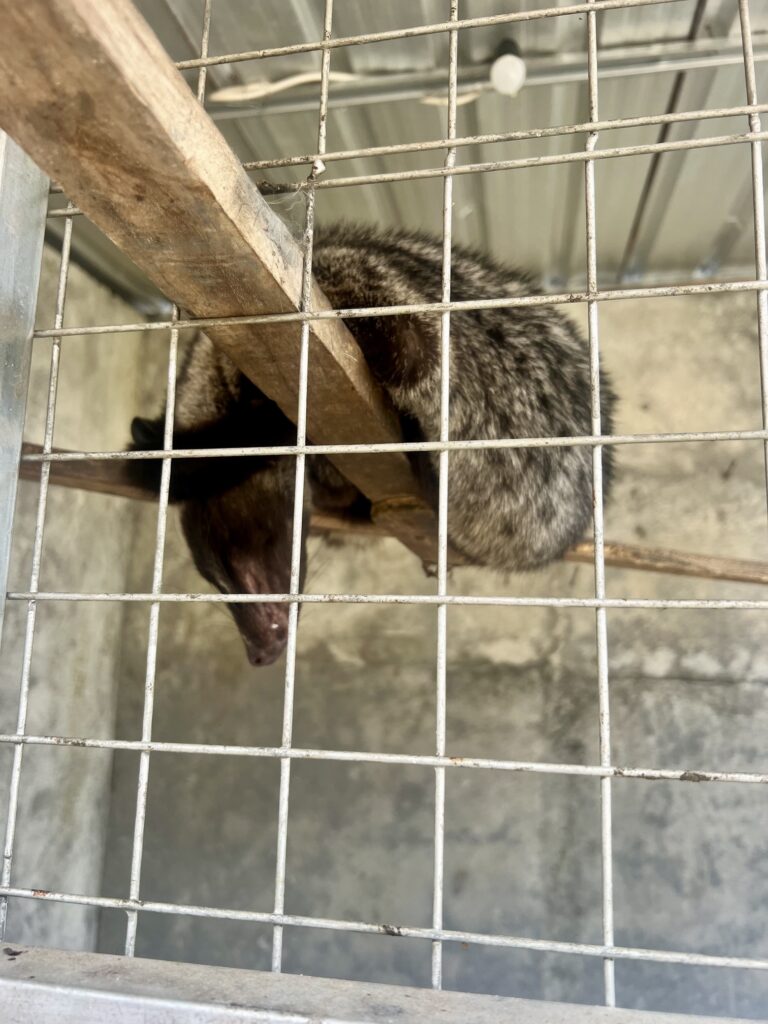
Addressing Animal Welfare in Luwak Coffee Production
Kopi Luwak production raises serious ethical questions. This is mainly due to how wild civets are treated in captivity. Wild animals do best in their natural homes. Keeping them just for coffee raises big concerns about animal welfare, as highlighted in a BBC report. Tony Wild, a prominent figure in the coffee industry, has voiced his concerns about this issue.
Civets in small cages often face cramped spaces, limited diets, and stress, which harm their health. To address these issues, it’s important to support farms that care about animal welfare, like those recognized by PETA. Look for certifications from groups that promote humane treatment of civets in Kopi Luwak production. This helps build a better industry.
True Kopi Luwak should come from wild civets finding food naturally. By supporting such practices, we help these amazing animals and keep the real taste of Kopi Luwak alive.
Sustainable Practices in the Luwak Coffee Industry
Sustainability is very important for ethical Kopi Luwak production. It focuses on caring for civets, ensuring fair labor practices, and reducing harm to the environment.
Ethical coffee plantations support the natural needs of civets. They offer large spaces, climbing areas, a variety of food, and regular vet care. It’s also vital to have transparency in how coffee is sourced and produced. You should look for producers that share clear details about where and how their coffee is made. When you support sustainable practices, you help ensure that future generations can enjoy this special coffee. You also make sure that they do not suffer from animal exploitation or harm to the environment.
Conclusion
Pure Kopi Luwak coffee gives a unique and special experience for coffee lovers. Its interesting history and the special way it is made with civet cats, alongside the dedication of coffee farmers, make each sip rare and luxurious. While enjoying the unique taste of Luwak coffee, it is important to think about ethical issues and support practices that are good for the environment. Knowing what real Kopi Luwak is helps you have an authentic experience, as this coffee offers a moderate amount of caffeine. Enjoy the fun of tasting this special coffee and delight in the rich flavors that make it different from regular coffee.
Planning a visit to Indonesia? Check out my complete travel guide!
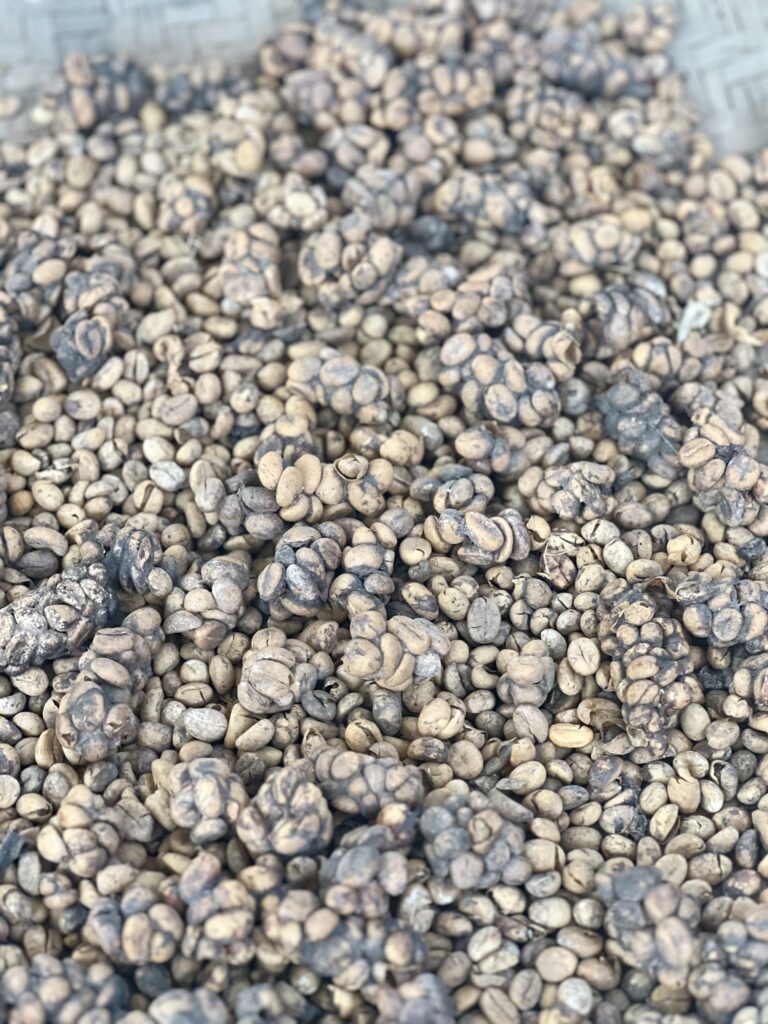
Frequently Asked Questions
What Makes Luwak Coffee So Expensive?
Kopi Luwak is expensive because it is rare and needs a lot of work to make. Even National Geographic has highlighted its limited supply, along with its special story and popular flavor, making it one of the most expensive brews and one of the most costly coffees in the world.
What Does Luwak Coffee Taste Like?
Kopi Luwak, specifically from West Java, has a special taste that people love. It is usually described as smooth and rich. Many say it is less bitter compared to regular coffee. The way it ferments naturally helps improve its aroma. This process gives it a unique flavor. Many people see it as earthy, musky, and a bit sweet. Some people will try to compare the taste to Turkish coffee, but weaker in caffeine. In my opinion, the taste is completely different.
Related Posts
Explore Yosemite National Park: A Nature Lover’s Paradise
Key Highlights Next, let’s dive into what makes Yosemite National Park an unmatched treasure of the United…
Local Favorites: What Food to Eat in California
Key Highlights Introduction California, also called the golden state, is a great place for people who love…
Discover the 20 Best Places to Visit in California Now
Key Highlights Introduction California is a place that has something for everyone. You can find natural beauty…

